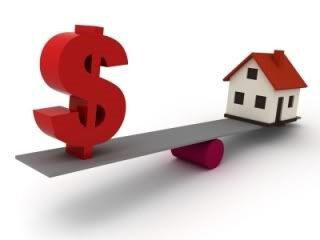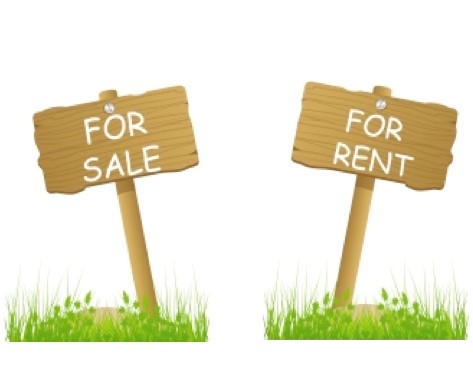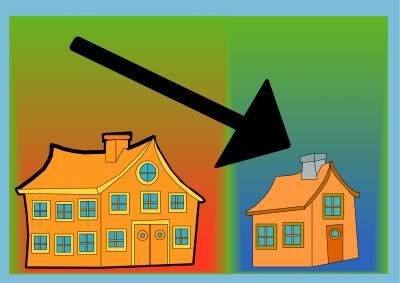Real Estate Information Archive
Blog
Displaying blog entries 41-50 of 69
Selling in the Fall is a Great Idea - Here’s Why!

While summer is considered by many to be the hottest time for selling a house (both literally and figuratively), sometimes circumstances require you to sell during a different time of the year. This fall might be exactly the right time to sell. Homes are still in demand and there is a good chance you will find a buyer before the end of the year. Here are some perks to selling in the fall:
- Buyers are seriously looking in the Fall. They want to get settled into a new house before the holiday season begins. The pressure is on for them to find their new home quickly and this puts you (the seller) in the driver’s seat when it comes to negotiations.
- There is less competition in the fall. Many sellers need to close and move before school starts, so fewer houses are for sale. With less to choose from, buyers can’t afford to be quite as picky.
- You will be dealing with different types of buyers. Families often move in the summer to accommodate school schedules. Empty Nesters and Millennial Home Buyers are more likely to be looking in the fall. In addition, employers who need to relocate their workers often wait for fall to avoid the hot market during spring and summer. A speedy closing is the goal of most of these buyers, which means you are more likely to get the best price possible for your house.
- Fall is pretty. The weather is cooler; the leaves are changing colors and fall décor can make homes look and feel warm and cozy. This is a great time of year to dress up your house to entice buyers.
So, if you have been thinking about putting your house on the market, don’t wait until spring.
Contact Sandra Nickel and her Hat Team of Professional Realtors at 334-834-1500 and get your house listed and sold this Fall!
Retirement - A Time to Sell

With more and more Baby Boomers reaching retirement age, they will be asking themselves if they should sell their homes. This is a time in their lives to finally enjoy the fruits of their labor and the last thing many want is to have to take care of a large home or be tied down to a big mortgage. Today’s housing market has low inventory of starter and trade-up properties, meaning there are a lot of buyers out there competing for homes. So, the question retirees need to ask themselves is, “should we sell now?”. Consider these questions to find your answer:
- Will you be able to afford your home once you have retired? It’s important to think long term about the monthly costs of staying in your home. Even if you have paid off your mortgage, you will still be responsible for Property Taxes, insurance, HOA fees, and utilities. Then there are home repair costs. If you are living on a limited monthly income, an unexpected, costly home repair can be devastating.
- How much Equity do you have in your current home? If you have a lot of equity built up in your current home, you can use that to purchase a retirement home and have little or no mortgage, freeing up your monthly income for other things.
- Can you keep up with home maintenance? Maybe you are someone who enjoys yard work and other home maintenance tasks, but depending on your age and health, these chores can become more challenging with time. A condo with an HOA fee might be the way to go so that you can enjoy your golden years with the peace of mind in knowing that you don’t have to do maintenance work yourself.
- Do you feel secure in your home? Criminals prey on the elderly. It’s a sad, but true fact. Elderly homeowners are often targets for scams and break-ins. Home security systems are helpful, but living somewhere that has 24-hour security, such as a manned gate-house and resident only access can provide you the security you need to be able to relax and enjoy retirement.
- Is your current home set up property for limited mobility? As people age, getting around can get more challenging. People are living longer, more active lives these days, but that doesn’t mean that you will always want to climb the stairs to your bedroom. And what if you must use a wheel chair at some point? Are your doorways and hallways wide enough? Will you have easy access to a bathroom and shower? Homes in retirement communities are built with these things in mind and often offer the best of both worlds…activities to keep you busy and entertained and accommodations for any physical needs you might have in the future.
- Is your current home in a convenient location? There are many things to consider about location. Are you close to a hospital and drug store? Can you easily get to shopping and entertainment venues? Are your grandchildren close by? Maybe you are living in a fantastic school district, which was great when your kids were growing up, but doesn’t really serve you now. If that’s the case, take advantage of the resale value that will give you and sell so that you can find a home that is more conveniently located for you.
If you are considering selling so that you can find your perfect forever home, contact Sandra Nickel, a Seniors Real Estate Specialist (SRES), and her Hat Team of professional Realtors and let them help you get your house on the market and sold for the best possible price. Call them today at 334-834-1500!
Photo Credit: forbes.com
The Price is Right - How to Price Your Home to Sell

When preparing to put your home on the market, there are a lot of things you need to think about: deciding if you should make home repairs and improvements, staging your home to impress potential buyers, keeping your lawn and house in prime condition for viewings and prepping to move. But one of the most important decisions you must make is how much you should ask for your house. Determining the asking price for your home cannot be taken lightly. There needs to be some psychology and strategy used to decide the price that will sell your home in a timely manner and for the most profit. You and your Realtor should identify and agree upon the approximate value of your property. You can use Comparable Sales of similar properties sold in your neighborhood to help you make this decision.
Next, you need to understand the price range for your list price. Depending on market conditions, competing properties, time of year or inventory, the price range can fluctuate. For example, a house with the asking price of $500 K can have a price range of $480 K to $520 K. Once you have determined your home’s value and have a price range in mind, it’s time to conclude what your asking price will be. This is where pricing strategies come into play.
- Appeal to multiple buyers - It may be tempting to ask for the highest price you think you can possibly get for your home. But if you price your property on the lower end of the value range, you will likely appeal to more than one buyer and you might even have a bidding war amongst buyers who want your home. Chances are you will get more than your asking price if this happens.
- Utilize psychology when choosing your asking price - Be careful of too many zeros. For example, it is easier for a buyer to process $250 thousand than it is $250,000 - and $250,000.00 is even worse on the eyes. Buyers feel like they are being asked to pay more when there are more zeroes included in the price. It doesn’t change the actual price, but the perception of the price changes.
- Make sure it’s visible in real estate searches - If buyers are looking for three-bedroom homes under $400 K and you have your property priced at $405 K, an automated buyer search for properties under $400 K will exclude your home, meaning you will miss out on a lot of potential buyers. Experienced Realtors will set up search parameters for buyers that include properties listed a little bit more above their price ceiling. Keeping in mind that home prices are flexible, buyers could find the perfect match on a home above their limit, but with the possibility that it is in within a reasonable range of price or that it will be reduced.
- Have a price contingency plan before listing your home - You may have very high expectations regarding the worth and appeal of your home. If you insist on asking top dollar for it, you may get lucky (depending on the current market) and get it, or you may not get any full price offers at all. In that case, it’s important to have a contingency plan lined up before you list your home. That way, if you must lower your asking price, you will already be prepared for it and it won’t catch you off guard.
- Be flexible - Setting an initial asking price is just the beginning of your home selling process. A lot of different factors may come into play when selling your house, and you won’t be able to anticipate all of them. Being flexible will allow you to react quickly to changing Market Conditions or new information and you will be more likely to get the best price for your home.
If you are planning to sell your house, contact Sandra Nickel and her Hat Team of professional Realtors and let them assist you in pricing it right for the current market. Call them today at 334-834-1500.
The Top Five Reasons to Hire a Realtor

Whether you are looking to purchase a home or getting ready to sell one, the process of doing so will go much more smoothly if you have an experienced Realtor to represent your interests. You might be thinking that you can save money by trying to do it on your own, but the truth is that the time, energy and stress a Realtor will save you is priceless! Here are the top five reasons why you should hire a Realtor when buying or selling a house:
- EXPERTISE - Experienced real estate professionals will know all the ins and outs of buying and selling homes. Real estate has a language of its own, and Realtors will speak it fluently. They are not only familiar with all the forms, reports and disclosures involved, they understand them and can explain them to you. They will work to get you the best deal possible and help you avoid costly mistakes. Glossary of Real Estate Terms
- ACCESS - Realtors can search listings that the public does not have access to. They will know immediately when a house goes on the market; long before you can find it on the internet. Local Realtors will also have a lot of knowledge about different neighborhoods and areas that may appeal to you.
- NEGOTIATION - Realtors are trained negotiators. It is their job to get you a first-rate deal. With fierce competition for homes and the chance of a bidding war, you are going to want a shrewd and experienced negotiator on your side.
- CONNECTIONS - They know who’s who in every aspect of a real estate transaction. They can hook you up with a mortgage lender, home inspector, real estate attorney, home stager, etc. And since the best deal for you benefits them as well, they are going to make sure to recommend the top people in their professions.
- TIME - While searching for a new house, or getting one ready to sell, chances are you’re still working full time, taking care of a family and feeling a little stressed about everything you need to do. Slow down, take a deep breath and let your Realtor alleviate that stress a bit. Being a Realtor is a full-time job that you don’t need to add to your to do list.
The bottom line is, you probably can buy or sell a home on you own, but that doesn’t mean you should. Hiring an experienced professional like Sandra Nickel will make your home-buying/selling experience less stressful and more successful. Call her today at 334-834-1500!
Photo Credit: wondersunn.com
Selling Your House vs. Becoming a Landlord - Should You Sell or Should You Rent?

Whether moving for a job or just relocating for personal reasons, you still must decide what to do with your current home. Should you rent it out? Or sell it? There are many circumstances to consider before making that decision. How long do you have before you move? What is the housing market doing in your area? And do you have someone you can trust to manage your property?
Of course, the biggest motivator in your decision is which option will be most financially profitable. If you have a lot of equity in your house and can sell it, you’ll walk away with some cash to put toward your new home. If the house is paid off, you’ll walk away with A LOT of cash. However, if your equity is built up and you have low mortgage payments (or no mortgage payment), you could bring in a substantial monthly income by renting the house for more than your monthly payments. You do have to consider the costs involved with renting the house out. If you’re relocating to another town, you will likely have to hire a Property Manager to collect rent and take care of issues that come up. You might also have to pay to advertise the home.
There are going to be risks involved either way. If you put the house up for sale, you run the risk of not selling it quickly and possibly ending up with two mortgage payments or a house payment and rent payment on a new place. But, renting out your house could be a bigger risk. There’s a chance you will rent it to people who you think will be good tenants, but wind up paying the rent late or not at all. There is also the risk that renters will not take care of the house and lower its value.
Another issue to consider is that housing markets can greatly fluctuate from year to year. You must question whether your neighborhood is in the kind of shape to support a quick sale. If other homes haven’t been selling, for example, you might not get as much for your house as you might if you could wait a year or two and rent it out in the meantime. On the other hand, if the housing market is hot in your neighborhood, it might just be the best time to take advantage of it and sell to get the best price possible.
Finally, you have to think about whether you can afford a new mortgage while you still own the first house. Per Kiplinger, lenders count about 75 percent of the income you receive from renters when figuring out if they’ll give you a new loan, but that’s only if you have a signed lease and your salary is sufficient to cover the rest of the mortgage requirement. Selling your house will make it much easier for you to qualify for a new loan.
The bottom line is that, after doing your research, you can decide whether selling or renting is the best and most financially sound choice for you.
If you’re thinking about selling your home let experienced Realtor Sandra Nickel and her Hat Team of professionals assist you in getting your home listed and sold for the best possible price! Call them today at 334-834-1500!
Photo Credit: hawaiilife.com
Renovating Before Selling - Worth it or Not?

If you are preparing to list your house for sale, you may be wondering if the financial reward will be worth the time, effort and money to fix up things that are in disrepair or that are dated. The answer to that question depends on a myriad of circumstances such as the current real estate market, the condition of competing inventory and whether the renovations that need to be made generally provide a return on investment.
Some home buyers are looking to purchase a "Fixer Upper". They are looking for properties priced to sell, perhaps because they don’t qualify for more expensive homes or maybe because they want to make a profit by fixing the home up themselves. Most fixer buyers want to do simple repairs such as painting walls, replacing light fixtures and putting in new carpet. Only a few want to take a house down to the studs and completely redo it. These potential buyers will want a price for the home that will allow for all the repairs, the inconvenience of doing the work, and often a bit more. For example, if a home is worth $200,000 fixed up but needs a new roof, and the roof costs approximately $10,000, a buyer most likely will not offer $190,000 for this home. The reason is that they can probably find a similar house that already has a new roof for $200,000 and save themselves the headache of replacing it themselves. A buyer in this situation might offer $175,000 or less, in which case it would make more sense for the seller to replace the roof and sell it for $200,000.
It’s important to note that many buyers are looking for "Turn Key" homes. They fear having to make major repairs because they might be costlier than anticipated or other problems might be revealed. Even if the price is right, homes listed for sale in “as is” condition might not attract as many buyers.
However, before doing major renovations, there are many things to consider. Smart sellers will research what their home’s market value will be once improvements are made and compare it to the cost of the renovations. If an upgrade won’t provide return on the investment, it probably doesn’t make sense to do it. Knowing the condition of your competition is helpful. For example, if other homes for sale in your neighborhood all have modern kitchens, it might make sense to update yours. This doesn’t mean you should tear it down and start from scratch. Often a minor kitchen remodel will suffice. Also, keep in mind that kitchen and bathroom remodels are known to bring the best return on investment.
Start by making a list of the things in your home that are dated or in disrepair and then prioritize. Here is a list of 10 minimum improvements to make before putting your house on the market:
- Patch all holes and cracks in walls and ceilings.
- Fix all appliances and HVAC systems.
- Repair leaky faucets.
- Replace worn carpeting.
- Repaint dark or marred walls in neutral colors (not white).
- Replace broken windows.
- Repair the roof.
- Change dated light fixtures/ceiling fans.
- Replace old linens/window coverings.
- Fix any code violations.
If your real estate market is a sellers’ market and homes are moving quickly, you can get by with fewer fix ups, however a home that needs repairs will still deliver a lower price. If it’s a buyers’ market, people might not even be willing to look at homes that need repairs. Sandra Nickel and her Hat Team of Professional Realtors can help you understand the current market in Montgomery, AL so that you can make informed decisions about whether to sell your house “as is” or not. Give them a call today at 334-834-1500!
Curb Appeal on a Budget

When selling a home, curb appeal is one of the most important factors in attracting buyers. Your yard and the front of your home are the first thing they will see, and while nobody should judge a book by its cover, many people do. The appearance of the outside of the home can determine if a potential buyer will even be willing to look at the inside. So, attractive curb appeal is vital to getting your home sold.
You don’t have to spend a lot of money to get great curb appeal. There are many small, inexpensive home improvements that can be done to create a look that will impress!
- Give a fresh coat of paint to the front door, trim or shutters.
Nothing will brighten up your home’s façade like a bright, fresh coat of paint!Costing only about $30 a gallon you can get a lot of bang for your buck.Choose a bold hue that will stand out, while still complementing the overall color of your home.
28 Inviting Colors to Paint a Front Door
- Add some creative new house numbers.
Installing some new house numbers will not only look good, it will also make it easy to find! Be creative and utilize materials that will match the finish of your exterior light fixtures.Make sure the numbers stand out!
- Change exterior lighting.
If your light fixtures are looking shabby, it’s time to replace them. Consider the design of your home and look for fixtures that add both function and style. Save yourself some time by using fixtures that have the same mounting system as the ones you will be removing.
- Replace your mailbox.
Whether your mailbox is by the road or attached to your house, it can either add to or take away from your curb appeal depending on how it looks. You can find a new mailbox for as little as $20.This quick project will go a long way toward improving the look of your home.Just make sure you are following city/county/HOA regulations when installing it.
- Install flower boxes.
If you want to add some color to your home exterior, there is no better way to do it than with flowers!Try adding some inexpensive flower boxes to your front porch railings or under your windows.You can even DIY them in an afternoon! Choose flowers with colors that will complement your home.
15 Planter Boxes You'll Want to DIY Right Now
Are you ready to list your house for sale this spring? Sandra Nickel and her Hat Team of professional Realtors can answer any questions you may have about preparing your home to sell. Give them a call today at 334-834-1500!
Photo Credit: Lowes.com
What NOT to Throw Away When Downsizing
Getting organized to move is an arduous task. It makes sense to get rid of a lot of unused belongings when you are getting ready to pack and move, especially if you are downsizing. But it’s important not to go overboard! There are some things that are worth keeping. In fact, there are some things you should never throw away, even when downsizing:
You should let go of as much paper as you can before moving, but be careful that you don’t thrown away important documents.Hang on to the following: birth and death certificates, marriage licenses, divorce decrees, social security cards, retirement documents, medical records, insurance policies, passports, wills, trusts, power of attorney documents, property deeds, investment records, education records, diplomas, military service records and vehicle titles.
- Collections.
If you collect something, clearly it has significance to you. Maybe you just like it, or maybe it has sentimental value.Either way, you should definitely take your collection with you and make room for it in your own home.Now, if you have several collections, you might have to pick your favorites and leave some behind.But downsizing doesn’t mean having to let go of the things that mean the most to you.
- Family Heirlooms
Sometimes you inherit things that you feel you must keep just because they were passed down to you from family.But you don’t really like them. You keep them packed in a box and don’t use or display them.There is no point in moving these to your new home. But family heirlooms that you love should make the cut.Downsizing gives you the opportunity to take stock in your family heirlooms and decide what is worth keeping and what can be sold or given away.Take the items that you enjoy and that are meaningful to you…leave the rest.
- Electronics
Unless you have the time to make sure that all your electronics have been completely cleared of personal information, you should take them with you.The last thing you want is to give away, sell, or dispose of electronic devices that still carry your personal information.
- Photographs
When you are in the midst of packing for a move and you are exhausted and overwhelmed, you might start throwing away things that seem unimportant at the moment…but you may regret it later.Take all your photographs with you.If you have time, save space by getting them digitized using a company like Legacy Box. But don’t throw them away!
- Landline Phones
Many people rely solely on cell phones these days.But you never know when you might misplace your mobile phone, run out of battery or lose service.Keep at least one land line for emergencies.
- Sentimental Items
This may seem like a given.Of course you won’t leave any sentimental items behind.But sometimes it’s difficult to decide what holds deep sentimental value to you, especially when you are overwhelmed by the sheer amount of stuff you have to move and fit into your new, smaller home.Don’t let downsizing make you feel like you must get rid of the things that mean most to you.Choose the ones that mean the most and bring them along!
Are you looking to downsize? Sandra Nickel and her team of professional Realtors can help you get your current home on the market and assist you in finding the perfect home to suit all your needs and desires. Give them a call today at 334-834-1500!
Home Seller Checklist - How to Know You’re Ready to Sell

It’s a seller’s market right now folks. Demand for homes is high and inventory is low. So, it seems like the perfect time to list your house, right? Slow down. The market may be prime for selling, but you need to look at your personal situation. Before you put that for sale sign in your yard, it would be wise to consider all the factors that will determine if you are ready to sell.
Here are signs that you are ready to sell your house:
- You have positive equity. It’s vital that you are financially prepared to sell your house. If you have built up equity, that means your home is worth more than you owe on it. Ideally you want to have enough equity to pay off your current mortgage and to make a down payment on a new home. It’s even better if you have enough to cover closing costs and moving expenses. If you don’t have positive equity, it is a bad idea to sell.
- You have cash in the bank and zero debt. It’s important to have all your financial ducks in a row before selling your house. Remember, you’re not just selling a house, you are likely buying one as well. Take time to analyze your finances and budget. If you have paid off your non-mortgage debt and have funds saved, you are ready to enter the home selling/buying process again.
- A home that better suits your needs is within your reach. Perhaps you are downsizing, but you want a nicer home or you are looking to move up into a larger home for your growing family. Either way, there is no point in selling your current home if you can’t afford a new one that better suits your needs. Remember that, ideally, your mortgage payment should be no more than 28% of your income.
- You are aware of the extra costs involved in moving. It’s exciting to get approved for a mortgage. Chances are you will get approved for more than you thought you would. But there is a lot to think about before deciding to sell. Remember that you will need to probably do some work on your house to get it ready to put on the market. You will also have to pay the moving expenses. Make sure consideration of these costs go into your decision-making process.
- You are emotionally ready to sell. Hopefully you are selling for the right reasons. You have to be ready to put the work into your home that it will take to sell it. You must be committed to keeping it “show ready” for as long as it takes. You must be prepared for what might be a tough negotiation. And finally, you need to be ready to let go of the home where you have created memories with your family.
- You have an experienced Realtor. Real estate transactions should be handled by experts. The professionals at Hat Team Realtors understand the market and can provide you with a clear picture of what goes into selling a house. Their advice will assist you in making this very important decision.
http://www.homesforsaleinmontgomeryalabama.com/Blog/Archive/Page/1?c=Selling
http://www.homesforsaleinmontgomeryalabama.com/Blog/Dont-Let-These-Deal-Breakers-Ruin-Your-Home-Sale
http://www.homesforsaleinmontgomeryalabama.com/Blog/Preparing-to-Sell-Your-House-Getting-Organized
Displaying blog entries 41-50 of 69













